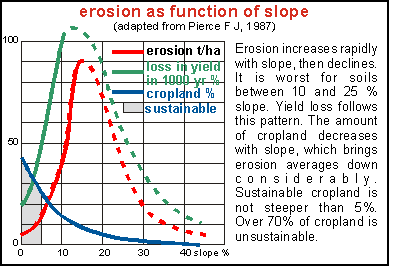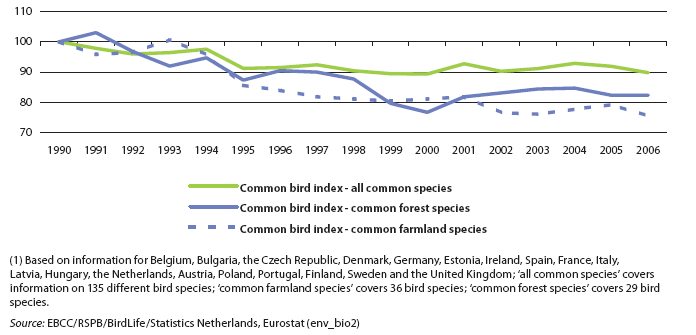Introduction
Deforestation can be described as the removal and felling of trees on a given piece of land. Thereafter, the land is converted into another use. In most occasions, these ends up being non forest use like urban developments and agricultural activities (Williams 2006, p. 9). The term deforestation has occasionally been misused to mean any removal or felling of a tree. This should not be the case because some trees can be felled in relation to existing and acceptable forest practices.
It should be known that deforestation is normally done for many reasons. These reasons may therefore vary depending on the prevailing circumstances. For instance, deforestation occurs when people cut trees to burn charcoal (Williams 2006, p. 12). Other people use these trees for fuel. Some people can clear forests for agricultural activities and settlements.
Therefore, there are various dynamics and approaches to the whole aspect of deforestation. It is always advisable to plant trees after deforestation has been done but this has been disregarded on many occasions. The whole aspect of deforestation has had numerous and devastating effects on the environment and the economy as a whole (Wunder 2000, p. 16). For instance, deforestation has led to aridity, damage to our habitat and the general loss of our biodiversity.
It should be known that areas that normally have a lot of deforestation activities experience soil erosion issues that need to be dealt with. Deforestation has occurred on a large scale because of various reasons. This include; mismanagement of forests, poor environmental laws and ignorance on the general value of forests in our society (Wunder 2000, p. 13). As a matter of fact, different countries are facing deforestation issues and this has led to a lot of problems.
Effects
Deforestation has various effects on the environment and our economy. Such effects include global warming, soil erosion and species diversity. Although there are other notable effects, this paper will focus on these three effects.
Global warming
Global warming can be described as the general increase in temperatures. This average increase in temperature has been witnessed in oceans and the earths near surface. The full effects of global warming have been seen in the mid-20th century and this is projected to increase as time goes by. An increase in temperature can be fully blamed on deforestation. As a matter of fact, it has been brought about by human activities that have increased the concentration of green house gases in the atmosphere (Wunder 2000, p. 18).
In a broad perspective, it is projected that the global temperatures will increase from 1.1 to 6.4°C (Williams 2006, p. 15). Therefore, 20 to 30% of greenhouse gases have been brought about by globalization. As a matter of fact, 1.6 billion tones of these gases are released in the atmosphere every year. To explain this aspect, it should be known that trees are 50% carbon (Ruddiman 2005, p. 11). Therefore, when these trees are felled, the carbon dioxide that they had stored goes back to the atmosphere.
Global warming has enhanced the spread of diseases. This is because disease carrying insects migrate to other areas, thereby bringing deadly diseases with them (Williams 2006, p. 21). As a matter of fact, malaria has not been eradicated in other areas because of this. Hurricanes and warmer waters have been brought about by global warming. Unless this is checked, we are likely to continue witnessing such issues.
The intensity of drought and heat waves has also been increasing as time goes by because of global warming (Wunder 2000, p. 14). As a matter of fact, some areas have ended up being wetter than other areas and this is very dangerous. In this case, Africa is expected to have serious water shortage problems.
It is being estimated that more than 13 million ha of trees are lost every year because of deforestation activities (Ruddiman 2005, p. 16). Most of these activities are being witnessed in developing countries. In this case, they have been reducing their forest cover to increase farmland. As a matter of fact, population pressure has depleted these forests as time goes by.


Soil erosion
Soil erosion is the transportation of various solid elements from the earth’s surface. This can be brought about by various factors. This transportation can be aided by water, wind and even ice. Although soil erosion is a natural process, it has been enhanced by various human activities. Such activities include deforestation and increased human land use.
Deforestation has enhanced soil erosion in a broad way. This is because trees anchor the soil with their roots. Therefore, when trees are felled, soil is easily washed away. As a matter of fact, few countries have good soils that can withstand soil erosion even when trees are felled (Poesen 2006, p. 9). Soil erosion has affected crop yield in different countries. This has therefore seen people import fertilizer to enhance agricultural production.

In extreme cases, people have been forced to clear additional forest cover because it is fertile than their existing agricultural land. Current statistics indicate that a country like Costa Rica loses a large potion of valuable soil every year. As a matter of fact, it is estimated that it loses 860 million tons of fertile soil. In addition, a country like Madagascar is also loosing a lot of soil and this has seen most of its rivers run red.
This soil has polluted various rivers and to a large extend affected the ecosystem of the Indian Ocean (Ruddiman 2005, p. 18). Such countries have grave environmental degradation activities that revolve around deforestation. The most notable effect has been seen on the ever declining agricultural productivity. This is because a good agricultural economy depends on fertile soils. In a broad perspective, this cannot be achieved if the top soil has been washed away by soil erosion.
Although soil erosion has various negative effects, it also has different positive effects that need to be appreciated (Poesen 2006, p. 11). For instance, fresh soil can be scattered to other dead areas. This therefore creates fertile lands in different areas.
The rate of soil erosion around the world has been increasing every year because of poor mitigation measures. In this case, the most astonishing statistics come from Ivory Coast that has been losing more than 90 tons of top soil per hectare (Poesen 2006, p. 13). Soil erosion is very costly to developing countries and should be looked at for sustainability. This is because it affects their infrastructure and vibrant agricultural activities like fish farming.
Species diversity
Species diversity can be described as an index that is used to evaluate and analyze the number of species in a given area. This is done in relation to their relative abundance and existence (Montgomery 2008, p. 17). Therefore, there are various factors that affect species diversity in a given area. Such aspects include climate change, the overharvesting of forests, and destruction of habitats.
In this case, deforestation has led to the decline of various species. It should be known that various species have their habitats in forests. Therefore, whenever the number of forests decline, species diversity is also affected in that proportion. The loss of species diversity has been increasing as time goes by. As a matter of fact, it had been estimated that deforestation will reduce the number of global birds by 20% in 2007 (Drake 2009, p. 12).

It should be known that deforestation has been driving a lot of tropical species to extinction. This is because most of the people who are enhancing and promoting deforestation do not know the value of such species. Deforestation has reduced the number of rivers around the world as time goes by. This has ended up reducing the number of fish stocks. As a result of deforestation, it is estimated that more than 400 bird species will be affected (Drake 2009, p. 17). In the long run, most of these species will become extinct.
Scientists have been worried that we are losing a lot of species every year because of deforestation. This is estimated at 0.01% to 0.1 % on all species. This is a vey big problem because human activities are driving a lot of species to extinction than this process is occurring naturally (Montgomery 2008, p. 14). As a matter of fact, there are various biodiversity hotspots that need to be looked at. This is as far as deforestation is concerned.
More startling statistics reveal that we are loosing 200 to 2000 species every year in every 2 million species that are in existence (Drake 2009, p. 17). This entire problem can be traced on deforestation and other human activities that threaten the lives of this species. It should be known that most of the earth’s biodiversity is located around the equator. The area around the equator is beset with a lot of poverty and this explains why most of these species are in great danger.
Arguments for conserving forests
There have been various arguments as per to why we should always conserve forests. This is because forests play an important role in our eco-system. In this case, it should be known that nature is a very important balance that needs to be looked at for sustainability (Montgomery 2008, p. 27). Many cities around the world have been having poor quality of air. This explains why we have many cases of asthma, allergies and other respiratory diseases.
In this case, countries should keep enough trees to enhance the quality of air. This is because trees filter the air thereby removing all pollutants. We should conserve forests because they are a source of food for various animals and even human beings (Poesen 2006, p. 23). As a matter of fact, they provide the shade from the sun. Forests provide a habitat for various animals. If we don’t preserve these forests, various animal species will be affected.
Governments should preserve forests to get rid of global warming. This is because global warming has been brought about by deforestation. Global warming is a very sensitive issue that can be solved through the conservation of forests around the world. The most important argument as per to why we should conserve forests is because trees provide oxygen that we breath in our lives (Drake 2009, p. 14).
Most of these forests have trees with an important medicinal value. Therefore, the continued search for drugs and medicines presents a good reason and opportunity as per to why we should conserve forests (Drake 2009, p. 19). In a broad perspective, forests should be protected because the world has distinct plant and animal species that need to be preserved. In this case, conserving forests can save a lot of species that live in these forests.
Forests have a lot of economic value to various countries around the world. As a matter of fact, they provide rubber and paper that is used to make various products (Williams 2006, p. 16). Therefore, it will be wise for various countries to ensure that forests are conserved because of this value. In a broad perspective, forests should be conserved to help future generations. This is because their livelihood depends on the state of our environment.
Wholesomely, forests are very important for the ecosystem. This is as far as the symbiotic relationship between various plants, trees and animals is concerned (Montgomery 2008, p. 22). In this case, they should be effectively conserved to enhance this symbiotic relationship in our environment.
Action
An effective action should be taken to preserve our forests. This is because the rate of deforestation has been increasing as time goes by. Because deforestation is a global issue, all stakeholders should be incorporated to come up with a lasting solution to this problem. These stakeholders can involve governments, environmental groups, multinational companies and al international organizations (Drake 2009, p. 26).
The first action that various governments can come up with is the creation of reserves in tropics. In this case, they can allocate enough funds to help in such efforts. This should be collectively done by all governments because deforestation is a global issue (Montgomery 2008, p. 29). As a matter of fact, every government should allocate enough funds towards the conservation of forests.
Consumer action is another strategy that can be used to conserve forests. This will therefore compel companies and governments to conserve forests. In this case, consumers can reject products from companies that do not protect forests (Ruddiman 2005, p. 24). There should be an effective awareness campaign to educate people on the importance of forests. This is because some people do not know the importance of forests in the society.
In this case, people should be encouraged to plant tress for their own good. To enhance such programs, governments should ensure that tree seedlings are availed to citizens every now and then to encourage them to plant trees. In extreme cases, governments should come up with strict and tough laws to protect forests (Wunder 2000, p. 17). As a matter of fact, they can come up with harsh punishments for those people who will be found destroying tress.
It is necessary to come up with alternative energy to reduce the use of wood fuel in different countries. It should be known that wood fuel is mostly used in poor and developing countries. Such efforts will reduce the destruction of forests for fuel. Various businesses should be encouraged to become forest friendly in their operations (Wunder 2000, p. 31). This is because forest destruction means a lot to most of these businesses. Every individual has an obligation to conserve forests in his area. Therefore, it will be wise for people to sign petitions that will enhance the conservation of forests in their areas.
Environmental organizations should be encouraged to save and conserve forests. This will in turn raise awareness on why people need to conserve our forests. Government protection will play an important role in saving our forests in future. In this case, every body should support all forest conservation activities (Montgomery 2008, p. 19).
Conclusion
Forests play an important role in our society and should therefore be protected by everybody. It is always advisable to plant trees after deforestation has been done but this has been disregarded in many occasions. The whole aspect of deforestation has had numerous and devastating effects on the environment and the economy as a whole.
Most of these forests have trees with an important medicinal value. Therefore, the continued search for drugs and medicines presents a good reason and opportunity as per to why we should conserve forests. In addition, they provide rubber and paper that is used to make various products.
Reference list
Appinsys., 2010. Linear trends. Web.
Drake, S., 2009. Classic Erosion. Venture West: Wiley.
Eurostat., 2010. Biodiversity statistics. Web.
Geocraft., 2010. A Brief History of Ice Ages and Warming. Web.
Montgomery, D., 2008. Dirt: The Erosion of Civilizations. California: University of California Press.
Poesen, J., 2006. Soil erosion in Europe. Chichester: Wiley.
Ruddiman, W, F., 2005. Plows, Plagues, and Petroleum: How Humans Took Control of Climate. New Jersey: Princeton University Press.
Seafriends., 2010. Soil erosion and conservation – part1. Web.
Williams, M., 2006. Deforesting the earth from prehistory to global crisis: an Abridgment. Chicago: The University of Chicago Press.
Wunder, S., 2000. The Economics of Deforestation: The Example of Ecuador. London: Macmillan Press.